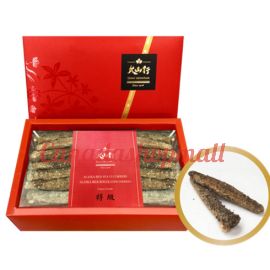We use cookies to make your experience better. To comply with the new e-Privacy directive, we need to ask for your consent to set the cookies. Learn more.
A.Vogel Echinaforce Echinacea Purpurea 100ml
$100.00
In stock
SKU
A.Vogel Echinaforce Echinacea Purpurea 100ml
A.Vogel Echinaforce Echinacea Purpurea 100ml—NPN:00418714
The proven Echinacea extract for Cold
A.Vogel Echinaforce®
Echinacea Purpurea
Echinacea purpurea is known for its antiviral, antibacterial and anti-inflammatory properties
Organic cultivation certified by Bio Suisse
Gluten-, sugar- and lactose-free
Clinically proven
Not all Echinacea preparations are the same!
Alfred Vogel maintained that complete effectiveness was only contained in fresh plants. Observation and many conversations with his patients backed up his theory that preparations made from fresh plants have a better and broader effect than those made from dried plants.
For this reason, A.Vogel herbal remedies are as fresh as Nature. The plants for A.Vogel’s fresh plant remedies are prepared within 24 hours of harvesting.This principle applies to organically grown plants as well as to those that have been gathered from the wild.
Composition
Each 1 mL (33 drops) contains tincture of:
Medicinal ingredient:
Fresh organically grown* Purple Coneflower (Echinacea purpurea)
Herb (1:12) ...0.95 mL, equivalent to 79 mg dried herb;
Root (1:11) ...0.05 mL, equivalent to 4.5 mg dried root.
Non-medicinal ingredient:
1 mL of tincture contains 0.67 mL alcohol (ethanol).
* Certified by Bio Suisse
1 mL = 33 drops. Dropper included.
Dosage
Adults: Take 20 to 30 drops with water, 3 to 5 times daily, 15 minutes before meals. Insalivate before swallowing.
Historical overview
Long before the coming of the European settlers, the native Americans used Echinacea (also called Purple Cone Flower) to treat a variety of problems, from infections to snake bites. In the United States, Echinacea was popularized by the eclectic physicians` movement in the 19th Century. After that, its use was almost forgotten until the 1980`s. In Europe, however, Echinacea was popular with the medical world from the beginning of the Century and has been the subject of numerous clinical studies. Today, Echinacea is the most widely sold medicinal herb in the world.
Actions and pharmacology
In vitro studies have allowed the discovery of Echinacea’s action mechanism: its polysaccharides and polyacetylenes fractions stimulate the phagocytosis of macrophages and the production of cytokines like interleukine-1, interleukine-6 (also called interferon beta), interleukine-10 and TNF alpha factor. This effect shows Echinacea’s ability to stimulate the immune system in cases of infection.(1)
Chicoric acid and analogues derived from caffeic acid are presently under investigation for their effect on HIV-1 replication.(2)
Echinacea, particularly the echinacosides and caffeic acid derivatives, might protect collagen structures against degradation (oxidation) caused by free radicals. This antioxidant effect is also useful to relieve the inflammation generated by the immune system during its fight against the viruses of colds.
Scientific Studies
Many clinical studies demonstrate Echinacea’s efficacy as an immune system stimulant.(3-5) According to the authors of an important meta-analysis (a review of articles on clinical studies), Echinacea is effective against respiratory infections, especially if taken as soon as the first symptoms appear.(6)
Echinaforce® specifically has also been the subject of conclusive clinical studies. A double-blind placebo-controlled study was conducted in Sweden on Echinaforce® tablets. 246 patients suffering from colds took either 6 Echinaforce® tablets daily, a special Echinacea preparation (7 times more concentrated), another form of Echinacea, or a placebo. Echinaforce® and the concentrated preparation were equally effective in reducing cold symptoms and significantly more effective than the other Echinacea preparation or the placebo.(7)
Another study conducted on 119 patients demonstrated a 60% improvement of cold symptoms with Echinaforce® tablets compared to a placebo.(8)
A recent study (April 2002) on 48 volunteers showed that Echinacea significantly increases one of the markers of immune system stimulation: properdine.(9)
According to a recent pilot study, an Echinacea extract seems to reduce the side effects of certain chemotherapy medications.(10)
Precautions, contraindications and interactions
Consult a healthcare practitioner prior to use if you have autoimmune disorders, if you are taking immunosuppressants, or if you have a progressive systemic disease such as tuberculosis, leucosis, collagenosis, multiple sclerosis, AIDS or HIV infection, or if you have rheumatoid arthritis.
Do not use during pregnancy or nursing.
Do not use if you have an allergy to the Asteraceae/Compositae (daisy) family or in case of known allergy to any of the ingredients in the product.
Consult a healthcare practitioner if symptoms persist.
Do not use of security cap is broken. Keep out of reach of children.
References
1. Burger Ra, Torres AR, Warren RP et al. Echinacea-induced cytokine by human macrophages. Int J Immunopharmacol 1997;19(7):371-9.
2. Lin Z, Neamati N, Zhao H et al. Chicoric acid analogues as HIV-1 integrase inhibitors. J Med Chem 1999;42(8):1401-14.
3. Facino RM, Carini M, Aldini G et al. Echinacoside and caffeoyl conjugates protect collagen from free radical-induced degradation: a potential use of Echinacea extracts in the prevention of skin photodamage. Planta Med 1995;61(6):510-4.
4. Gunning K. Echinacea in the treatment and prevention of upper respiratory tract infections. West J Med 1999;171:198-200.
5. Barrett B, Vohmann M, Calabrese C. Echinacea for upper respiratory infection. J Fam Pract 1999;48:628-35.
6. Grimm W, Muller HH. A randomized controlled trial of the effect of fluid extract of Echinacea purpurea on the incidence and severity of colds and respiratory infections. Am J Med 1999;106:138-43.
7. Barrett B, Vohmann M et Calabrese C. Echinacea for Upper respiratory infections. J Fam Pract 1999;48(8):628-35.
8. Degenring FH, Enquête sur l'efficacité thérapeutique d'Echinaforce®. Ganzheits Medizin 1995;2:88-94.
9. Brinkeborn R, Shah D, Geissbühler S et al. Echinaforce® dans le traitement des états grippaux aigus. Ganzheits Medizin 1998;10(1):26-29.
10. Gallo M, Sarkar M, Au W et al. Pregnancy outcome following gestational exposure to echinacea: a prospective controlled study. Arch Intern Med 2000;160(20):3141-3.
Write Your Own Review























